CISG and Auctions: Interpreting “Auction” under Article 2(b) of the CISG
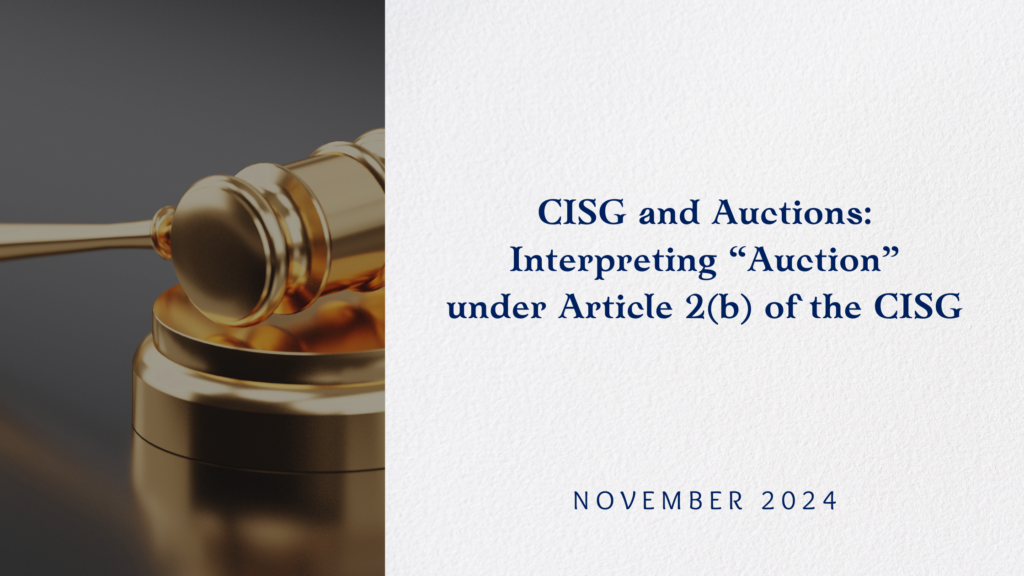
Pursuant to Article 2(b) of the United Nations Convention on Contracts for the International Sale of Goods (CISG), the CISG does not apply to sales by auction. What was the rationale for the exclusion of sales by auction from the scope of the CISG? How should an “auction” be interpreted under Article 2(b) of the CISG? Should any and all auctions fall within the scope of Article 2(b) of the CISG? These questions are explored in this article.
SCOTUS Denies Shell’s Certiorari Petition: Contracts for Inspecting and Repairing Lifeboats on Oil Platforms Qualified as Maritime
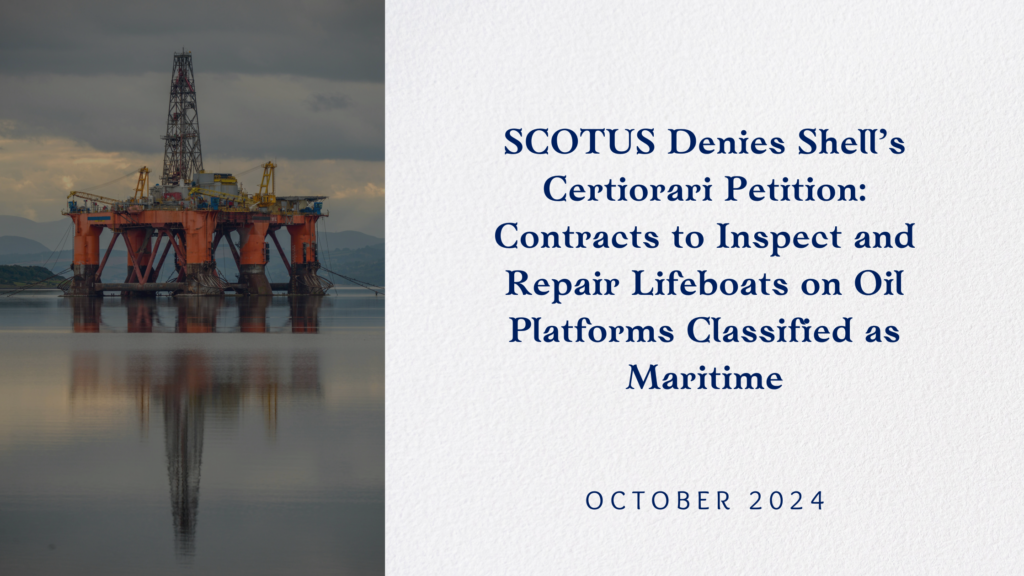
On October 7, 2024, the U.S. Supreme Court denied Shell’s certiorari petition to review the Fifth Circuit’s decision, which held that a contract to inspect and repair lifeboats on an oil platform located on the Outer Continental Shelf is a maritime contract. Earnest v. Palfinger Marine USA, Inc., 90 F.4th 804 (5th Cir. 2024).
Lack of Attorney Authority: Can It Be a Defense Against Enforcement of an Arbitral Award?
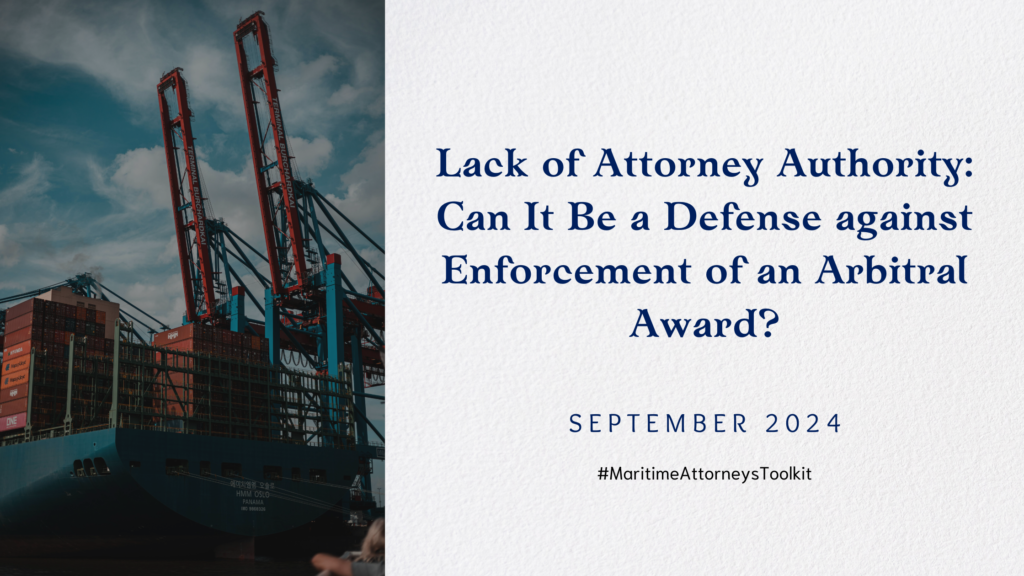
The District of Columbia Circuit vacated the district court’s decision to enforce a foreign arbitral award because the respondent, against whom the petitioner sought to enforce the arbitral award, challenged the authority of the petitioner’s attorneys. Does this result align with the traditionally narrow scope of enforcement proceedings under the New York Convention? Should the district court resolve the authority dispute despite the parties’ contractual commitment to resolve such corporate governance issues through arbitration? Is it proper to allow one party to challenge the other party’s authority during enforcement proceedings, even though this party had opportunity—and was even invited—to raise this issue during arbitration? These questions remain unresolved.
Saving to Suitors Clause: Understanding the Fundamentals
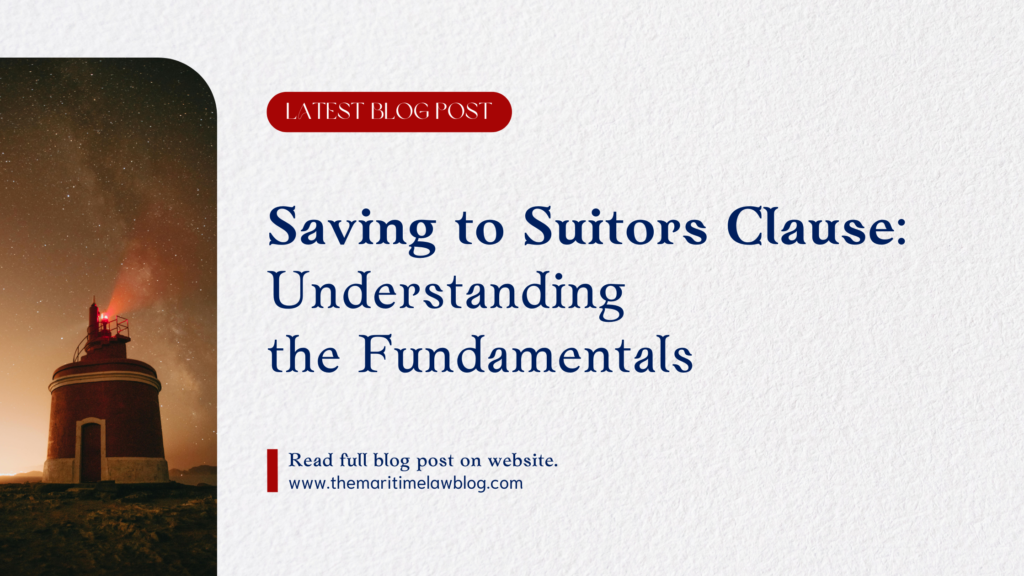
Under the jurisdictional statute, 28 U.S.C. § 1333(1), federal courts are granted “exclusive” jurisdiction over maritime claims. At the same time, the saving to suitors clause preserves the concurrent jurisdiction of state and federal courts. How to reconcile this conflict? Are there any other conflicts related to the saving to suitors clause? These questions are explored in this article.
Maritime Law Digest: July 2024

This is the July 2024 edition of Maritime Law Digest, a monthly review of the most significant maritime cases decided primarily by the U.S. Supreme Court, U.S. Courts of Appeals, and state supreme courts.
The Suez Canal Blockage: Can the Carrier Recover the Increased Shipping Costs Caused by Rerouting?
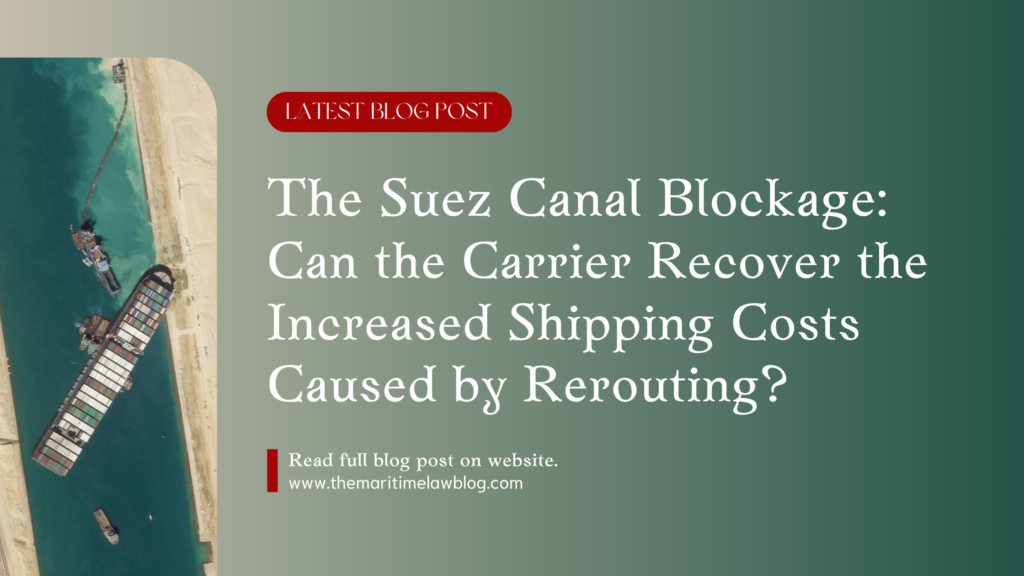
When the Ever Given, a large container ship, became lodged in the Suez Canal in March 2021, it blocked one the world’s busiest maritime routes for several days. This incident led to a significant disruption in global trade, as hundreds of ships were delayed or forced to reroute around the southern tip of Africa instead of passing through the canal. Rerouting around the southern tip of Africa, known as the Cape of Good Hope route, can add approximately 7 to 10 days to a ship’s journey. This longer route increases fuel consumption and operational costs. Can the carrier recover the increased shipping costs from the charterer? This question is analyzed in this article.
Wire Transfer Scam: Who Should Bear the Loss of the Funds Stolen by the Hacker?

In 2023, businesses and individuals have suffered massive losses of over $2.9 billion due to a scam called business email compromise (BEC). This scheme typically unfolds when hackers compromise legitimate business email accounts and trick victims into redirecting payments to fraudulent bank accounts. If the payer transfers funds to the fraudulent bank account, the legitimate payee remains unpaid. This raises the question: should the payer bear responsibility and pay twice? In this article, we will analyze the development of case law on which party bears the loss when wired funds have been fraudulently diverted by a hacker.
